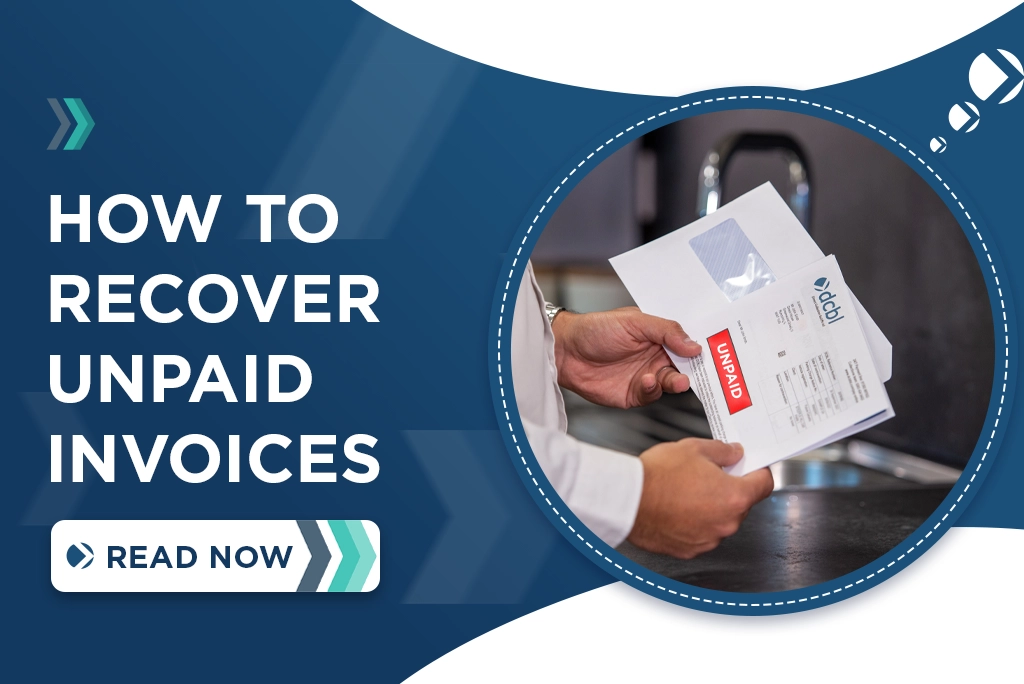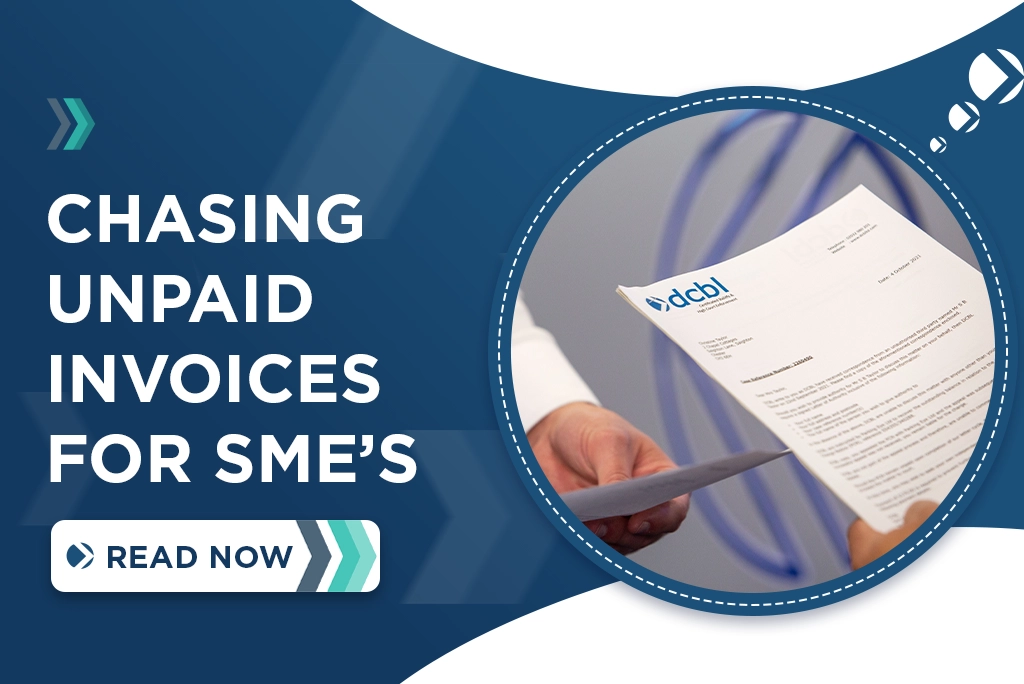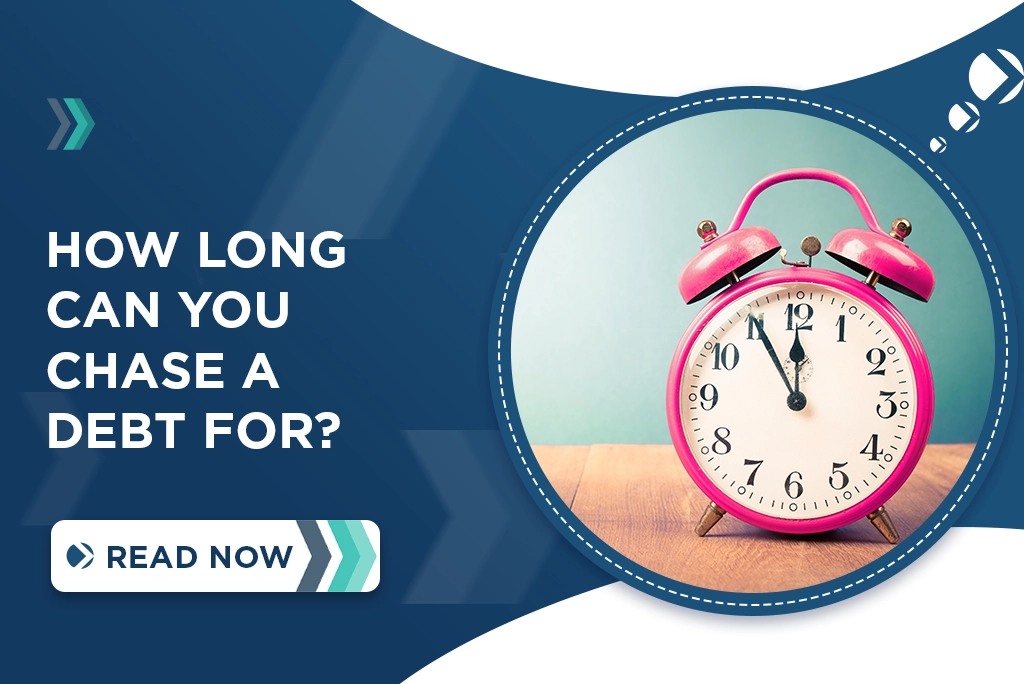
How to Recover Unpaid Invoices – 5 Expert Tips
24th October 2022
Is your business struggling with recovering unpaid invoices? DCBL understands how stressful it can be to pursue payments and has produced these expert tips on how to recover unpaid invoices.
After thorough research over the last year, we have found that most of the people that are owed money by an individual or another company are asking for advice and help on:
- How to chase outstanding and overdue invoices?
- How to collect unpaid invoices from customers?
- How to recover and pursue unpaid invoices?
With this data in mind, we have curated a list of helpful tips and advice if you have found yourself in a situation needing to know how to recover unpaid invoices.
How to Recover Unpaid Invoices – Contents
- What Is an Invoice?
- What Are the Effects of Unpaid Invoices?
- What Is a Credit Period?
- Statutory Demand
- 5 Easy Tips for Recovering Unpaid Invoices
What Is an Invoice?
An invoice is essentially a bill or tab that records a transaction between a buyer and a seller.
The invoice will state whether the goods or service are on credit and provides information on available payment methods and due dates.
DCBL understands the negative impacts and financial strain that bad debtors can put on companies. To help you chase your unpaid invoices, we have produced an expert guide.
What Are the Effects of Unpaid Invoices?
The monitoring of unpaid invoices and debt is essential to businesses and their cash flow.
Neither must be left outstanding otherwise it can have a negative knock-on effect on cash flow disruption, which can lead to financial difficulty and impact business growth.
Commercial debt is unfortunately a common issue for many businesses across the UK. It’s extremely disappointing when a customer is given a specific time to pay and yet they still disregard this.
Siemens Financial Services reported that late and unpaid invoice payments meant small and medium businesses (SMEs) in the UK miss out on over £250 billion they are entitled to.
A survey of 1,000 SMEs found that around 23% say late payments put them at risk of closure.
Outstanding invoices, as well as causing difficulties for financial departments, can also create difficult relationships with clients.
Consistently chasing debtors can put a strain on business relationships, and in cases where the debtor does not comply and pay the outstanding bill legal action may be taken.
What Is a Credit Period?
A credit period is the time frame between when a customer purchases a product and when the payment is due. The credit period begins either on the day the work is complete, or when the company delivers the goods.
Some companies or industries make it policy for clients to pay before the end of the month which follows the invoice month, this leaves a credit period of up to 60 days.
Without any written agreements in place, the government states that your customer must pay you within 30 days of getting your invoice.
Statutory Demand for Prompt Payment
If the debtor has not paid the debt during this time, then a statutory demand can be served.
This is a written warning from a creditor, stating that if the debt is not paid or no acceptable arrangement is put into place, then they may start court proceedings to make the debtor bankrupt.
To make a statutory demand, you do not need a lawyer.
When a debtor receives the letter, they have 21 days to either:
- Pay the debt
- Reach an agreement to pay
If the statutory demand receives no response within 21 days, the creditor can only apply for proceedings to bankrupt the individual or company.
While this is a step that is used by a lot of people looking at getting paid, when a payment becomes late it is best to contact a debt collecting agency.
A debt collection agency, such as DCBL, are specialists in the field of recovering overdue invoices when a payment becomes late.
5 Easy Tips for Recovering Unpaid Invoices
It is important to consider steps that will help minimise the chances of unpaid invoices before taking chasing action against your debtor.
DCBL’s top 5 tips will help ensure you pursue unpaid invoices quickly and cost-effectively.
1. Draw up a contract that outlines payment terms
Having an agreed contract that outlines payment expectations is essential.
Small to medium businesses will rely on these especially if they need to put in negligence claims for financial loss.
Payment terms should be written and both parties need to sign in a formal agreement. These will outline any repercussions if the debtor wont pay.
If you do not agree on a payment date, the law says the payment is late 30 days after either:
- The customer gets the invoice
- You deliver the goods or provide the service (if this is later)
2. Keep a clear record
Recording all documents and points of contact with the customer i.e., calls, emails, dates, and times comes in handy if you ever need to backtrace or cross-reference important information.
You can use the evidence to claim interest and debt recovery costs if the payment is late.
3. Keep your invoice template simple
Ensure your invoice template is simple and easy to complete.
This makes the process less time-consuming for the customer and encourages them to pay the invoice.
Late commercial payments are less likely to show up and payments will be paid on time if your invoice software is up to date.
4. Be persistent with chasing unpaid invoices
If your customer has an unpaid invoice and stops responding to emails – you should try following up with a call.
In many cases, phone calls are harder to avoid than emails and you can use these as a payment reminders. It will explain to the customer that they have an outstanding date, and outline the arranged payment terms.
If your customer is unwilling to pay, outline the procedures that you will follow up to try retrieve your debt.
Recovering an unpaid invoice does not have to seem like a time consuming task to recover debt owed to you.
5. Contact DCBL to Pursue Unpaid Invoices
If you need to take action for unpaid invoices, DCBL can help. Being a strong and credible brand enhances our proactive engagement with customers.
We understand how important it is to keep the relationship with the debtor, especially if they are a client that you regularly work with.
As such, we ensure that the debt recovery service we provide to our clients is ethical and compliant, as well as successful.
Knowing how to recover unpaid invoices can be a challenge in itself, but we are the experts and can help you to recover the money that someone owes you.
Click here to get a free quote for debt recovery on unpaid invoices.










